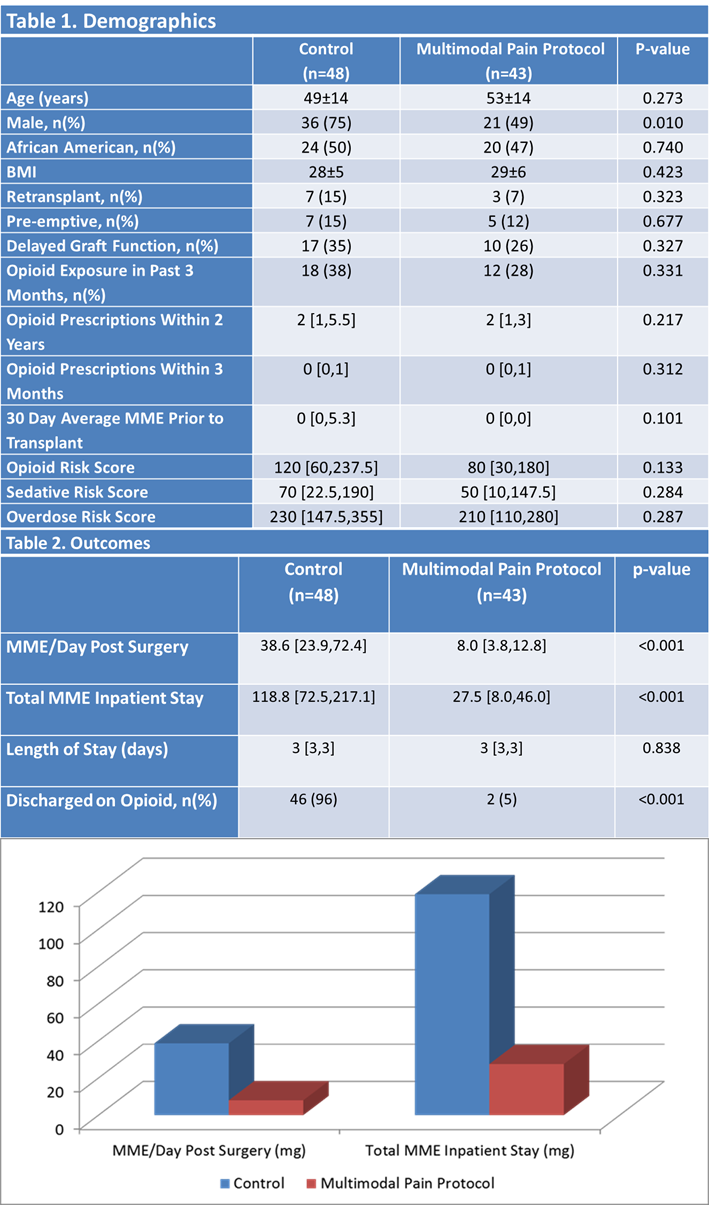Opioid Minimization in Kidney Transplant: Achievable Quicker Than You Think
Medical University of South Carolina, Charleston, SC
Meeting: 2019 American Transplant Congress
Abstract number: 606
Keywords: Kidney transplantation, Outcome, Safety
Session Information
Session Name: Concurrent Session: Quality Assurance Process Improvement & Regulatory Issues II
Session Type: Concurrent Session
Date: Tuesday, June 4, 2019
Session Time: 4:30pm-6:00pm
 Presentation Time: 4:30pm-4:42pm
Presentation Time: 4:30pm-4:42pm
Location: Room 210
*Purpose: Opioid use after kidney transplant has been shown to be a risk factor for chronic opioid use, which leads to an increased risk of mortality. The purpose of this study was to evaluate the early impact of a multimodal pain regimen and education quality improvement program on opioid use after kidney transplant two months after implementation.
*Methods: This was a retrospective, single-center analysis of post-operative opioid use, comparing the average daily MME of the patients who received education on opioids and a multimodal pain regimen (preoperative TAP/QL block, scheduled APAP and gabapentin) compared to a historical control group.
*Results: Despite having no differences in pre-transplant opioid exposure (Table 1), daily and overall inpatient opioid utilization was significantly reduced in the multimodal pain protocol cohort (38.6 vs 8.0 MME/day; p<0.001); 5% of patients in the multimodal pain protocol cohort were discharged with an opioid prescription, compared to 96% of controls (p<0.001) (Table 2, Figure 1).
*Conclusions: Our early results demonstrate that a multimodal pain protocol can effectively and dramatically reduce short-term opioid utilization in kidney transplant recipients. Follow-up to determine changes in long-term opioid utilization is warranted.
To cite this abstract in AMA style:
Fleming JN, Patel N, Gonzales H, Pilch NA, Parks S, Perez C, Baliga PK, Nadig SN, Taber DJ, Rohan V. Opioid Minimization in Kidney Transplant: Achievable Quicker Than You Think [abstract]. Am J Transplant. 2019; 19 (suppl 3). https://atcmeetingabstracts.com/abstract/opioid-minimization-in-kidney-transplant-achievable-quicker-than-you-think/. Accessed February 18, 2026.« Back to 2019 American Transplant Congress

